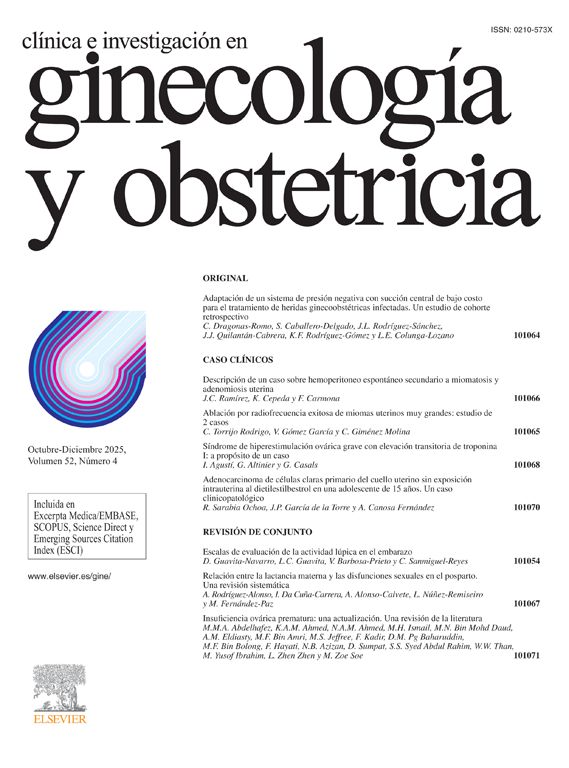Determinar la susceptibilidad genética ejercida por el inhibidor del activador del plasminógeno-1 y el receptor GP IIb/IIIa de las plaquetas en la patogenia de la activación del sistema de la coagulación en la diabetes gestacional.
Material y métodos:Se seleccionaron muestras biológicas de 151 gestantes; 74 con diabetes gestacional y 77 del grupo control. Se analizaron los polimorfismos genéticos para el gen de la GP IIb/IIIa y el inhibidor del activador del plasminógeno-1, y el estudio de los parámetros de la coagulación TF, proteína S, proteína C, antitrombina III, factor II, fibrinógeno, tiempo parcial de tromboplastina activada y tiempo de protrombina.
ResultadosLa presencia del alelo 4G se asoció con un mayor riesgo de presentar complicaciones entre las diabetes gestacionales (el 37,2 frente al 53,1%, para la ausencia y la presencia de complicaciones, respectivamente). En el grupo de diabetes gestacional se obtuvieron diferencias significativas en los valores de fibrinógeno para el genotipo A1/A1 y el haplotipo A1/A1-5G/5G (p < 0,05).
ConclusionesLa asociación de determinadas combinaciones alélico-genotípicas de los marcadores analizados en el grupo de pacientes con diabetes gestacional hace pensar en la existencia de una participación genética en la variabilidad de determinados parámetros de la hemostasia en esta subpoblación.
To determine the genetic susceptibility of plasminogen activator inhibitor-1 (PAI-1) and gly-coprotein (GP) IIb/IIIa platelet receptor genes in the pathogenesis of the coagulation system activation in gestational diabetes (GD).
Material and methodsSamples were taken from 151 pregnant women, n = 74 gestational diabetes and n = 77 control group. The genetic polymorphisms for the GP IIb/IIIa and PAI-1 genes were determined and coagulation system parameters (tissue factor, S protein, C protein, antithrombin III, factor II, fibrinogen, TPTA, thromboplastin and D-dimers) were measured. Statistical significance was if a computed two-tailed probability was less than 5% (p = 0.05).
Results4G allele was associated with a greater risk factor for developing complications in women with GD (32% vs 53.1% for the presence and absence of complications, respectively). In the GD group the fibrinogen values were significantly different for the A1A1 genotype and the A1A1/5G5G haplotype (p < 0.05).
ConclusionsThe association of some allelic-genotype combinations of the markers analyzed in the GD group seems to have a genetic participation in the variability of some coagulation parameters in this population.






